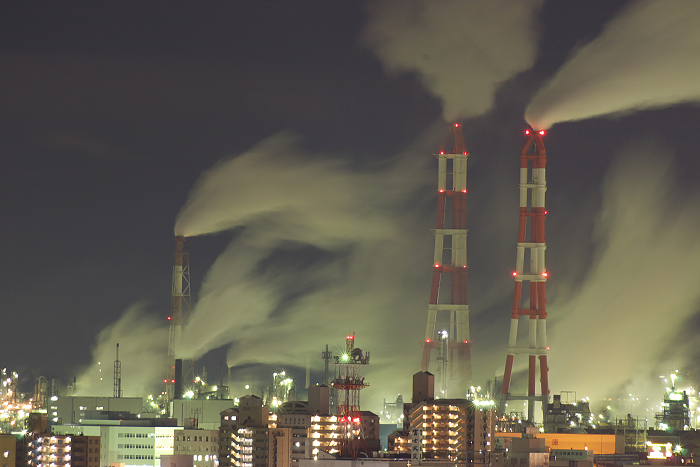The Kaminoge family had a pretty good afternoon exploring downtown Bremerton, and a write-up and photos will be posted in a couple weeks' time. Tomorrow, I'm planning on taking Amber on her first visit to a movie theater, to see Disney's "Tangled" (the only film playing around here that has a PG, and not PG-13, rating). On the newsfront, the story of cooperation between Japanese and Taiwanese chipmakers can still be found on the pages of Japan's English-language media, as this Yomiuri Shimbun 読売新聞 article (a follow-up from one in Sunday's edition) from the latest Daily Yomiuri shows:
"Leading Japanese chipmaker Elpida Memory Inc. エルピーダメモリ株式会社 has reached a broad agreement on production with a top Taiwan 台灣 manufacturer, a major step toward a Japan-Taiwan alliance to vie with the South Korean giants who dominate the field, it has been learned. Elpida's share of the global dynamic random access memory (DRAM) market stood at 16.1 percent and that of Taiwan's top chipmaker Powerchip Technology Corp. was 2.6 percent at the end of the 2010 July-September quarter. Through the agreement, Elpida will acquire the Taiwan maker's production operations, boosting its market share to 18.7 percent, third in the world after South Korean mammoths Samsung Electronics Co. and Hynix Semiconductor Inc. Dominating the world market, Samsung holds a 40.4 percent share and Hynix has 19.8 percent. Elpida - established in 1999 through a merger of the DRAM arms of Hitachi Ltd. 株式会社日立製作所 and NEC Corp. 日本電気株式会社, and later joined by that of Mitsubishi Electric Corp. 三菱電機株式会社 - opted for an acquisition as the company thinks expanding scale is needed to compete with the two South Korean DRAM giants, company officials said. Elpida also plans to bolster ties with Taiwan second largest DRAM maker ProMOS Technologies Inc. to strengthen the Japan-Taiwan alliance in chip development, production and marketing, they said.
Under the deal, Elpida will purchase all Powerchip-produced DRAMs, which will be sold to electronics manufacturers under the Elpida brand. The Japanese firm also will consult with Powerchip over possibly taking over its factories. The broad agreement, made during talks between top executives last weekend, also states Elpida will consider taking on part of Powerchip's debts. Elpida said the deal with Powerchip 'enables us to expand our output without making a major capital investment.' Elpida, which only produces DRAM chips, has a history of partnerships with Taiwan chipmakers, including technology tie-ups with its two biggest DRAM manufacturers and the launching in 2007 of a joint production firm with Powerchip. Elpida is expected to be listed on the T'aiwan stock market in March.
T'aiwan is the world's largest supplier of PC parts and its information technology industry has been increasing its ties to...China. Experts see Elpida's acquisition of Powerchip's DRAM unit as a positive move for the firm's marketing strategy. Plunging global prices for DRAM chips spurred Elpida and Powerchip to enter into talks over a possible management integration in the latter half of 2010. Powerchip's DRAM production arm is the firm's core undertaking, accounting for more than 60 percent of its semiconductor operations. The company, however, has found it difficult to keep making the huge investments necessary for equipment improvements. A financial report released by Powerchip on Monday showed the firm suffered deficits of 8.3 billion Taiwan dollars (23.5 billion yen/$286 million) from October to December 2010. The company was faced with the need to separate its DRAM unit from the rest of its operations, according to analysts. Powerchip has been planning to switch its main operations from DRAM chips to sensors and semiconductors for driving liquid-crystal displays, they said. Elpida will shift its production base for PC chips from Hiroshima Prefecture 広島県 to Taiwan, and the Hiroshima facility will concentrate on producing high value-added DRAMs for smartphones. Yang Juilin, a senior researcher at Taiwan's Industrial Technology Research Institute 工業技術研究院 and an expert on Taiwan's semiconductor industry, said: 'Taiwan's chipmakers are small scale compared with the global giants. They'd be destined for collapse if they don't realign through management mergers or other measures.' Taiwan authorities that oversee the industry said if Elpida helped domestic chipmakers, they would back Elpida's bid to be listed on the Taiwan stock market. Elpida has also been negotiating with the other major Taiwan DRAM maker, ProMOS Technologies, about boosting their tie-up, including a possible management merger. It seems likely that realignment and consolidation of the semiconductor industry in Japan and Taiwan will accelerate further. Given the ever-intensifying competition with South Korean rivals, success of the 'Japan-Taiwan alliance' is seen as crucial for the survival of the chip industry in both nations."
In short, in order to survive in today's cutthroat business environment, one must link up with one ex-colony in order to counter the threat posed by another ex-colony.
While perusing the Japan Times ジャパンタイムズ website this morning, I came across the following short Kyōdō News 共同通信社 article which brought back a few memories:
"Kawasaki 川崎 and three other cities with large coastal industrial zones will hold an event this month to discuss how to draw more people to popular tours featuring night views of factories. The tours, pioneered by officials in Kawasaki, have gained popularity especially among women attracted to the novelty of viewing big industrial facilities spewing flares and steam and bathed in sparkling lights. Kawasaki officials invited their counterparts from Muroran 室蘭, Hokkaidō 北海道; Yokkaichi 四日市, Mie Prefecture 三重県; and Kitakyūshū 北九州 to the 'night factory viewing summit' planned for Feb. 23. Kawasaki has organized viewing tours by boat and bus of industrial complexes since 2008. They often sell out, sometimes in less than 20 minutes, and 65 percent of the participants are women, a Kawasaki official said."
Having lived for a period of about 18 months in Yokkaichi, a city noted for its industrial complexes (as well as a respiratory disease, Yokkaichi asthma 四日市ぜんそく), I can attest to the strange allure of the コンビナート, especially at night:

There are times when Nature faces some serious competition.

No comments:
Post a Comment